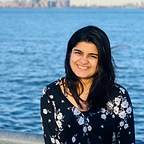The (Not 4) Ps / Pandemic and Patience
ACT I
This week, we geared up for one of our most exciting meetings — with officials in a state government that could provide us access to potentially ~44,00,000 students across the state. This would be an extremely exciting collaboration for the organization because —
- This particular state government is known for revolutionizing the education sector with multiple initiatives to improve the ecosystem for all stakeholders — teachers, parents, students, policymakers, and nonprofits.
- Access to such a large number of students would help us unlock economies of scale and implement our programme at scale — government collaborations are one of the biggest sources of unlocking scale in India.
So you put together three public policy nerds in a room and yes, it sounds like the beginning of a joke that’s likely to be poor, I can say with 95% confidence (thankful for API 201 and 202 for educating me enough to crack these jokes). There was a lot of number crunching to be done — looking at what we could potentially offer to the government for a collaboration. We did not have much information going in — just who we would be meeting. So our due diligence had to be as extensive as possible. Some tools/techniques that really helped in this process were:
- Analyzing the geographic spread of schools in the state and correlating it with district-level health and education outcomes to come up with a priority matrix of schools for a proposed pilot;
- Benchmarking using tangential programs implemented by nonprofits in the past in collaboration with this government to understand what outcomes mattered to the government and how our existing research publications/ongoing research could communicate that;
- Identifying how we could tweak how the program was implemented to better meet the needs of the existing school operations, especially during the pandemic.
I had the misfortune of being remote for this meeting since it was taking place in India — and couldn’t wait to hear all about it once the team was done.
ACT II
No degree of preparation and due diligence could have possibly prepared us for the nuances of the government’s approach to education during the pandemic. Don’t get me wrong — we expected it. We had been having these conversations for the last few months and knew to brace ourselves for the worst. After all, it is very difficult to be in a position of signing orders that seem to be shutting and reopening schools based on the vagaries of the various phases of the pandemic.
This is not limited to the state government we were in touch with but more of a general phenomenon that’s coming to light. It most deeply affects female students — who are contributing more to household chores + having restricted spaces for mobility/agency/speaking up/meeting with peers/growth and development opportunities that a school environment can provide. Further, with the challenge of often having only one smartphone device in the house (if any), a new version of families prioritizing the education of the male child over the girl child is likely to be the male child having greater access to the smartphone device for online school at the expense of the girl child.
When it came to response from the government in our case, I am not at liberty to reveal details but all public sector entities are struggling with a. students not having access to smartphones; b. setting up online classes; and c. providing any consistent resources for learning and growth during the pandemic. It seemed like the appetite for our work was very promising but the timing was not.
Takeaways?
Growth is not linear — and nonprofit expansion, definitely not. But you grow, you learn, and you get opportunities to still do excellent analyses and put to use some of the tools you’ve been able to pick up. And on some days, especially in the midst of a global pandemic, that’s got to be enough.
